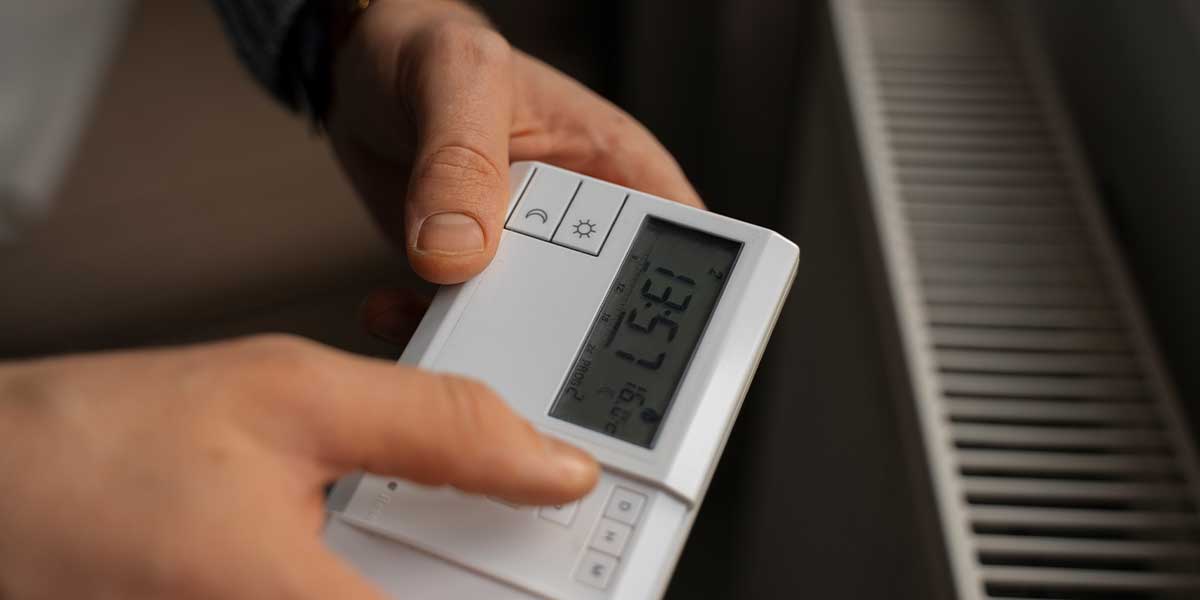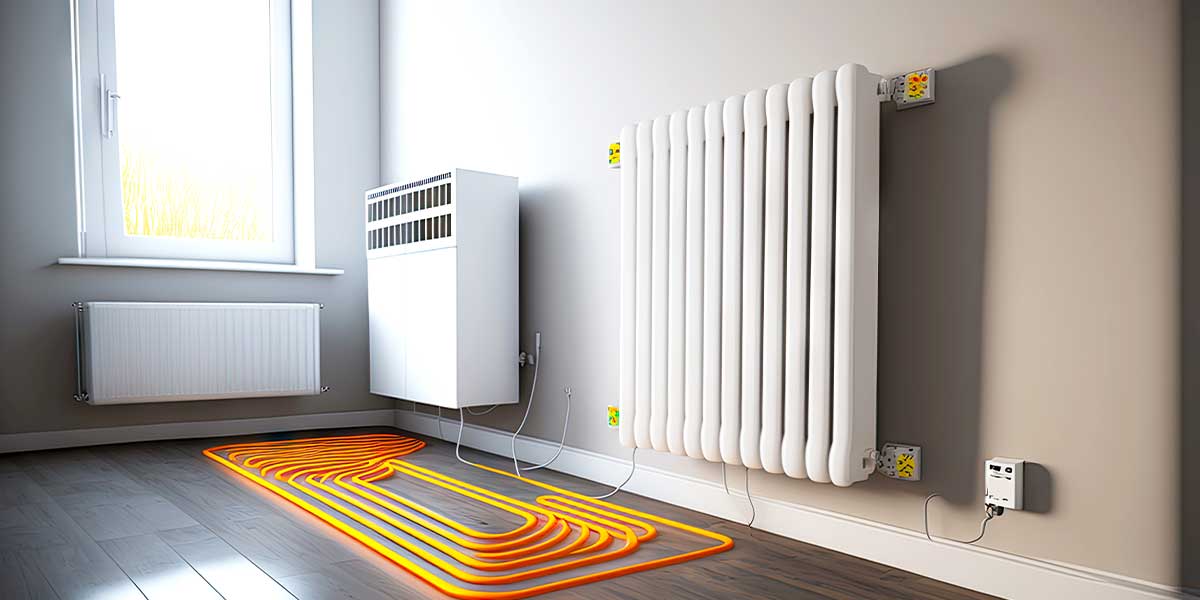Electric baseboard heaters are a common feature in many Canadian homes, offering simple installation, quiet operation, and reliable heating. However, they can also contribute to high energy bills if not managed properly. While these heaters work effectively in providing localized warmth, maximizing their efficiency is key to reducing unnecessary costs.
At Expert Electric, we know firsthand how much homeowners worry about rising utility bills. That’s why we’ve created this detailed guide on the best energy-saving tips for electric baseboard heaters. With smart strategies, you can keep your home cozy, cut down on heating expenses, and reduce your environmental footprint, all without sacrificing comfort.
Why Electric Baseboard Heaters Use So Much Energy
Before diving into tips, it’s important to understand why electric baseboard heaters tend to use more energy:
-
Individual room heating: Each heater operates independently, meaning multiple units may run simultaneously.
-
Lack of central control: Unlike central HVAC systems, baseboard heaters don’t regulate the entire house, often leading to uneven heating.
-
Continuous operation: Many homeowners leave them running for too long, even in unoccupied rooms.
By adopting the right practices, you can significantly lower your energy usage while keeping your rooms warm and inviting.
7 Energy-Saving Tips for Electric Baseboard Heaters
1. Seal Windows and Reduce Drafts
Most baseboard heaters are placed under windows, where cold air infiltration is strongest. While this placement helps offset drafts, it also means your heaters must work harder when windows are poorly insulated.
How to save energy:
-
Install weatherstripping or caulking around window frames.
-
Use insulating window film during winter months.
-
Hang thick curtains or thermal blinds to block out cold air.
By addressing drafts, your baseboard heaters won’t need to overcompensate, leading to faster heating and reduced energy usage.
2. Keep Your Heaters Clean
Dust, dirt, and debris can accumulate on the heating element and fins inside your baseboard heaters, making them less efficient. Dirty heaters require more energy to push out the same amount of warmth.
Maintenance tip:
-
Vacuum inside the unit 2–3 times per year.
-
Wipe down the exterior regularly.
-
Clear away furniture, rugs, or drapes blocking airflow.
Clean heaters don’t just save energy, they also last longer and reduce the risk of overheating.
3. Adjust Thermostat Settings Wisely
Many homeowners set thermostats too high, causing unnecessary energy use. The recommended comfortable temperature is around 18–20°C (64–68°F).
Smart thermostat strategies:
-
Lower the temperature at night for better sleep and savings.
-
Reduce heating when you’re away from home.
-
Use programmable or smart thermostats to automatically adjust settings.
Even lowering your thermostat by just 1°C can reduce your heating costs by up to 5–10% annually.
4. Only Heat the Rooms You Use
Unlike central systems, electric baseboard heaters allow for zone heating, a big advantage if used wisely. Heating unused rooms wastes energy and money.
Energy-saving strategy:
-
Turn off heaters in unoccupied rooms.
-
Close doors to trap heat in the spaces you’re actively using.
-
For frequently unused spaces, lower the thermostat instead of shutting it off completely to avoid freezing pipes.
This targeted heating ensures you only pay for warmth where it’s needed most.

5. Use Ceiling Fans for Circulation
Hot air naturally rises, which can leave your feet cold even while your ceiling feels toasty. Reversing ceiling fans to rotate clockwise in the winter helps push warm air back down, making your heaters more efficient.
Why it works:
-
Keeps warm air evenly distributed.
-
Reduces hot and cold spots.
-
Allows heaters to run at lower settings without sacrificing comfort.
6. Pair with a Supplemental Heating Source
If you live in a particularly cold climate, baseboard heaters alone may not be the most cost-effective solution. Consider pairing them with:
-
Heat pumps (more efficient for moderate climates).
-
Wood stoves or fireplaces for supplemental warmth.
-
Space heaters for occasional use in specific areas.
This hybrid approach reduces how often your baseboard heaters need to run at full power.
7. Upgrade to Modern Thermostats and Units
Older heaters and manual thermostats can waste energy by cycling inefficiently. Modern programmable or smart thermostats allow for fine-tuned control and scheduling.
Upgrade benefits:
-
Consistent room temperatures.
-
Lower long-term operating costs.
-
Remote control through smartphone apps.
Although upgrading requires an initial investment, the long-term energy savings make it worthwhile.
Energy-Saving Myths About Electric Baseboard Heaters
There are common misconceptions homeowners believe about baseboard heaters. Let’s clear a few up:
-
“Leaving them on all the time is cheaper than turning them off.”
False. Turning heaters off in unused rooms reduces overall energy consumption. -
“Higher thermostat settings heat rooms faster.”
False. Heaters produce heat at the same rate, regardless of the setting. A higher thermostat just keeps them running longer. -
“Baseboard heaters don’t need maintenance.”
False. Dust buildup drastically reduces efficiency and increases costs.
FAQs: Energy-Saving Tips for Electric Baseboard Heaters
Q1: Are electric baseboard heaters efficient compared to other heating systems?
Electric baseboard heaters are simple and reliable but generally less efficient than heat pumps or modern furnaces. However, with the right energy-saving tips for electric baseboard heaters, you can make them more cost-effective.
Q2: How often should I clean my baseboard heaters?
For maximum efficiency, clean them 2–3 times per year. Always vacuum before winter and midway through the season to avoid buildup.
Q3: Can I use smart thermostats with electric baseboard heaters?
Yes, many new models are compatible. Smart thermostats allow scheduling and remote control, which can significantly lower energy costs.
Q4: What’s the best temperature for saving money in winter?
Keeping rooms around 18–20°C (64–68°F) is comfortable for most people and helps reduce heating bills. Lower the setting at night or when you’re away.
Q5: Do baseboard heaters increase my electricity bill a lot?
They can if left unchecked. Following proven energy-saving tips for electric baseboard heaters can reduce your costs by 10–25% annually.
Final Thought
Electric baseboard heaters may not be the most energy-efficient option available today, but with the right strategies, you can enjoy warmth without skyrocketing energy bills. As BC Hydro’s Power Smart guide highlights, small adjustments like sealing drafts, lowering thermostats, and using targeted heating can make a big impact on energy savings.
At Expert Electric, our licensed electricians are here to help you optimize your home’s electrical systems. Whether you need thermostat upgrades, new heater installations, or a complete home energy efficiency assessment, we’ve got you covered.
Contact Expert Electric
Looking to save money and make your home more efficient this winter? Contact the experts today!
-
📞 Call Us: 604-681-8338
-
📧 Email Us: info@expertelectric.ca


